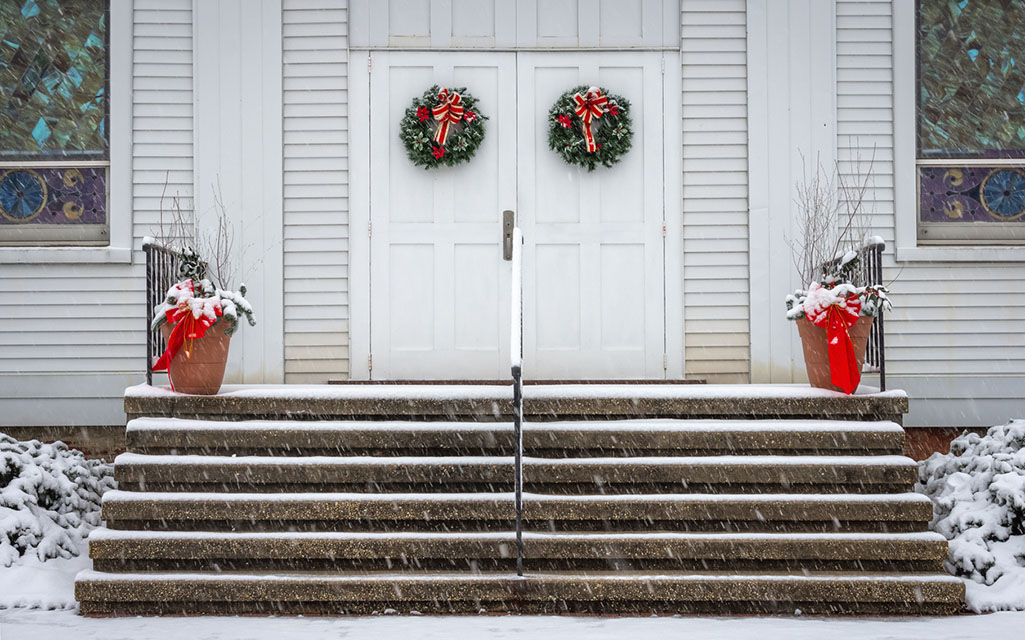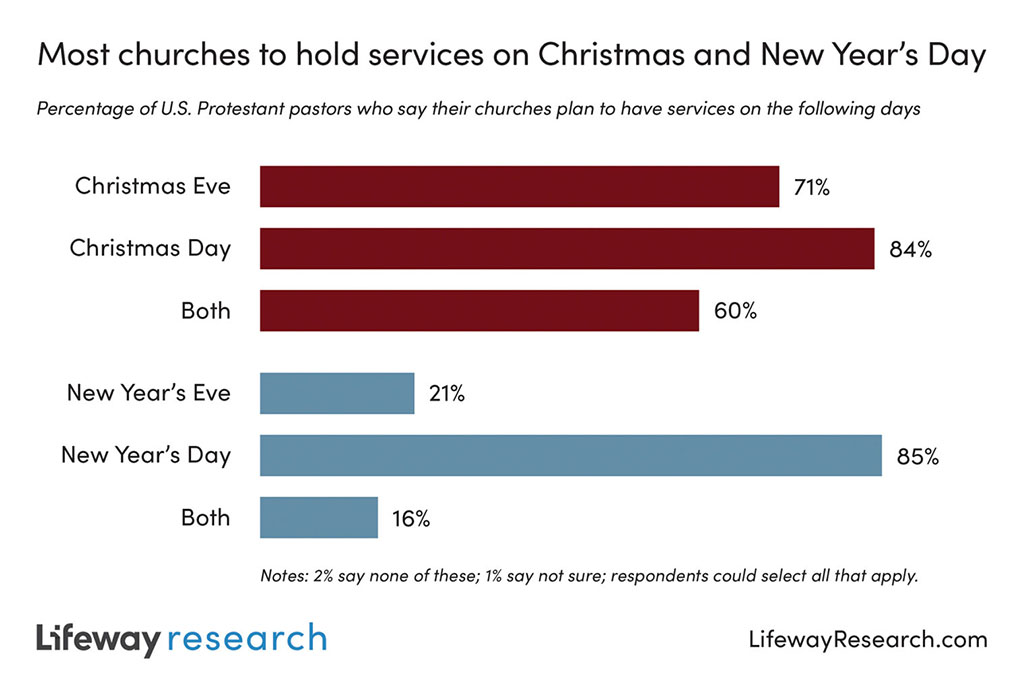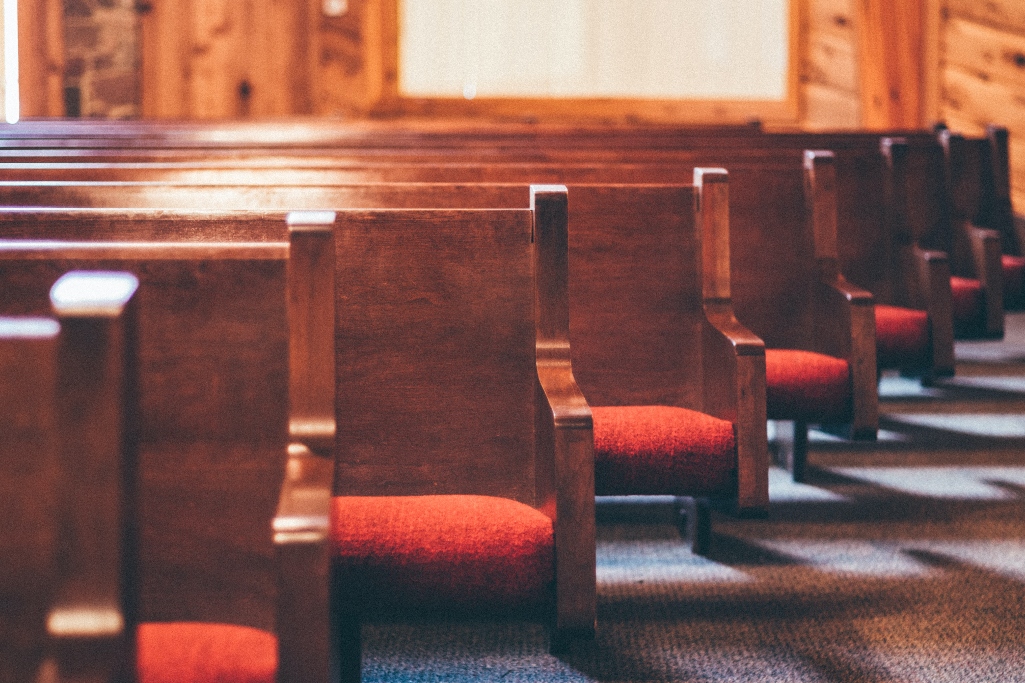
NASHVILLE – On Christmas Day, churches plan to welcome “all ye faithful” and anyone else who wants to celebrate the birth of Jesus.
Christmas falls on a Sunday this year, and for most pastors, that gives them all the more reason to gather. More than 5 in 6 U.S. Protestant pastors (84 percent) say their church plans to have services on Christmas Day, according to a Lifeway Research study. Slightly fewer (71 percent) say the same about Christmas Eve. While 85 percent plan on hosting New Year’s Day services on Sunday, 21 percent will have a Saturday New Year’s Eve gathering. Few pastors (2 percent) are not planning on having services on any of those days.
“Families have many traditions on Christmas morning, and most pastors acknowledge not as many of their members will be present compared to Christmas Eve and services earlier in the month,” said Scott McConnell, executive director of Lifeway Research. “However, churches not holding services on Christmas Day are still the exception.”

Christmas celebrations
As pastors recognize Christmas Eve specifically and the holiday season in general as a high attendance time at their churches, most plan to capitalize on the potential crowds by hosting services. Overall, churches have similar plans as they did six years ago, according to a 2016 Lifeway Research study.
In 2016, the last time Christmas fell on a Sunday, 71 percent of U.S. Protestant pastors planned to hold a Christmas Eve service, the same percentage as this year. On Christmas Day, slightly fewer pastors plan to be open this year compared to six years ago (89 percent in 2016 v. 84 percent in 2022).
This year, 60 percent plan to have church services on both Christmas Eve and Christmas Day, and 25 percent will only have a Christmas Day service. Around 1 in 10 pastors (11 percent) plan to only have a Christmas Eve service, higher than the 8 percent in 2016.
“Only 6 percent of Protestant churches will skip both Christmas Day and New Year’s Day services, likely including traditions that don’t meet on Sundays,” McConnell said. “Churches that do not meet when these holidays land on Sunday often say it’s for staff and members to spend time with their families. But few want to disrupt the churchgoing rhythm by missing two weeks in a row.”
Several demographic groups of pastors are more likely to be making plans for Christmas Eve services. Younger pastors, those 18 to 44, are more likely than the oldest pastors, those 65 and older, to say they’ll have a Christmas Eve service (76 percent v. 65 percent). White pastors (74 percent) are more likely than Hispanic (62 percent) and African American pastors (38 percent). Pastors in the South (64 percent) are the least likely to say their churches will be gathering on Christmas Eve.
Denominationally, Lutherans (95 percent), Methodists (91 percent) and Presbyterian/Reformed (84 percent) are more likely than non-denominational pastors (64 percent), Baptists (60 percent), Restorationist movement pastors (52 percent) or Pentecostals (45 percent) to be making plans for Christmas Eve services.
For those wanting to worship on Christmas Day, larger congregations and churches with an African American pastor are more likely to be open than non-denominational churches or those in the West. African American pastors (93 percent) are more likely than Hispanic pastors (80 percent) to make plans for Christmas Day services. Pastors in the West (74 percent) and those in non-denominational churches (61 percent) are among the least likely. Those at churches with 250 or more in attendance (90 percent) are more likely than those with fewer than 50 (80 percent) to plan for a Sunday service on Christmas Day.
Ringing in the New Year with church bells
Similar to Christmas services, few pastors are making changes to their New Year’s plans compared to 2016. Today, 85 percent of U.S. Protestant pastors plan to hold services on New Year’s Day, unchanged from six years ago. Slightly fewer pastors plan to hold New Year’s Eve services this year (25 percent in 2016 v. 21 percent in 2022).
In 2022, 16 percent of pastors plan to have both New Year’s Eve and New Year’s Day services, lower than the 20 percent who said the same in 2016. Most pastors (69 percent) are planning to only have a New Year’s Day service on Sunday, while 5 percent are planning on only having a New Year’s Eve Saturday service. Fewer than 1 in 10 (8 percent) aren’t planning to hold a service on either day.
“Some churches meet on New Year’s Eve for a service followed by fun and fellowship,” said McConnell. “Others have a late-night or watchnight service reflecting on the past year with spiritually significant times of prayer and observing communion. For African American churches holding services, there is also observance of Emancipation as it was first anticipated on the eve of Jan. 1, 1863. Even among groups where New Year’s Eve services are most common, it’s still a minority who gather that day.”
While New Year’s Eve is the day during this season when the fewest U.S. Protestant pastors say they plan to hold services, there are some churches that are more likely to gather on the last day of the year. The oldest pastors, those 65 and older, are more likely than the youngest pastors, 18 to 44 (24 percent v. 17 percent). African American (45 percent) and Hispanic pastors (45 percent) are more than twice as likely as white pastors (17 percent) to make plans for New Year’s Eve. Pentecostal pastors (34 percent) are more likely than Baptists (23 percent), Methodists (20 percent), Restorationist movement pastors (14 percent) and Presbyterian/Reformed (5 percent).
On New Year’s Day there are several groups of pastors who are more likely to treat it as a normal Sunday and have services. Pastors under the age of 55 (88 percent) are more likely than those 65 and older (81 percent). White pastors (87 percent) are more likely than African American (77 percent) and Hispanic pastors (77 percent). Those in the Midwest (87 percent) and South (86 percent) are more likely than those in the West (79 percent) to plan for a New Year’s Day gathering.
Restorationist movement (94 percent) and Baptist pastors (92 percent) are more likely than Methodist (82 percent), non-denominational (76 percent) and Pentecostal pastors (71 percent) to plan services for New Year’s Day. Those at churches with more than 100 in attendance (90 percent) are more likely than those with fewer than 50 on a normal Sunday (80 percent).
For more information, view the complete report and visit LifewayResearch.com.
Methodology
The phone survey of 1,000 Protestant pastors was conducted by Lifeway Research Sept. 6-30, 2022. The calling list was a stratified random sample, drawn from a list of all Protestant churches. Quotas were used for church size. Each interview was conducted with the senior pastor, minister or priest at the church. Responses were weighted by region and church size to reflect the population more accurately. The completed sample is 1,000 surveys. The sample provides 95 percent confidence that the sampling error does not exceed plus or minus 3.2 percent. This margin of error accounts for the effect of weighting. Margins of error are higher in sub-groups. Comparisons are made to a phone survey of 1,000 Protestant pastors conducted Aug. 22-Sept. 16, 2016.
(EDITOR’S NOTE – Aaron Earls is a writer for LifeWay Christian Resources.)


